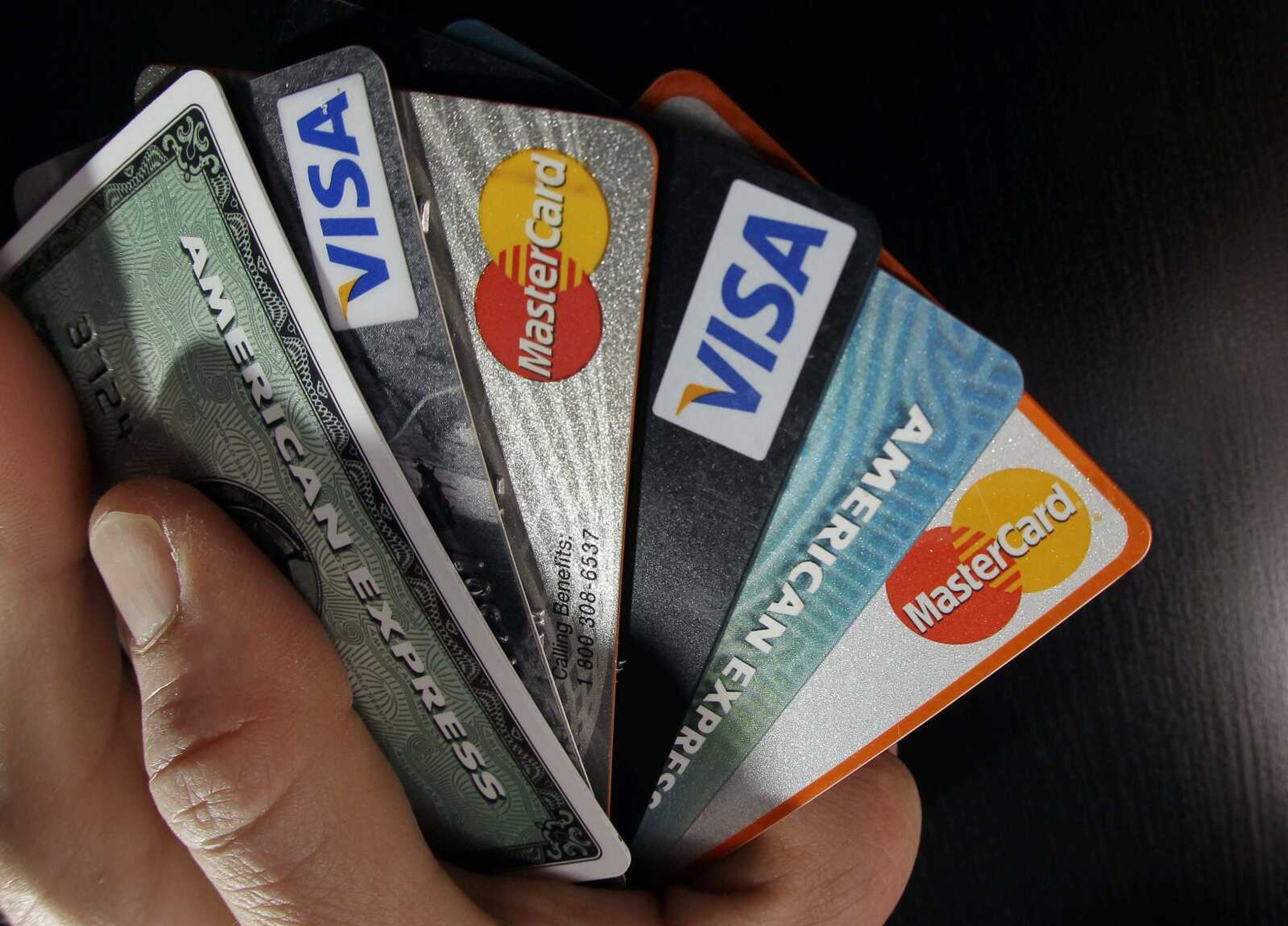Why you should consider freezing your credit reports
NEW YORK -- Freeze your credit reports before you get burned. That's the message from security experts, consumer advocates and some state attorneys general. They said more people should consider a credit freeze as a way to block identity thieves from opening new credit cards and other accounts in your name. They recommend a freeze even if your identity hasn't been stolen...
NEW YORK -- Freeze your credit reports before you get burned.
That's the message from security experts, consumer advocates and some state attorneys general. They said more people should consider a credit freeze as a way to block identity thieves from opening new credit cards and other accounts in your name. They recommend a freeze even if your identity hasn't been stolen.
"It's much better to shut the door before it even takes place," said Mike Litt, a consumer program advocate at the not-for-profit U.S. Public Interest Research Group. "You can save yourself so much time and headache."
I didn't listen, and now I regret it. Someone recently applied for 10 credit cards in my name and opened two wireless phone accounts. Removing the fraudulent activity off of my credit reports took hours: I had to make several phone calls, send paperwork and fill out a police report. My credit score probably will be hurt temporarily until everything is removed. I could have avoided that if I had frozen my credit reports earlier.
But there are some downsides to a credit freeze to consider. It also blocks you from opening new lines of credit, so if you plan to take out a mortgage or apply for a new credit card, you'll need to remember to unfreeze it each time. And residents of some states have to pay a fee for a freeze.
Here's more on how credit freezes work:
Q: What happens during a credit freeze?
A: New creditors won't be able to view your credit reports. That prevents new credit cards or loans from being opened because lenders look at credit reports to decide whether to offer you credit. Instead, they'll see the report is frozen. The freeze won't affect any credit cards or loans you had before the freeze was placed; those creditors still will be able to see your reports.
Q: When should I freeze my credit report?
A: It's a must if an account has been opened in your name or if you've been notified your Social Security number was taken in a data breach. Even if identity theft hasn't struck, you still should consider it, because data breaches have become so common. In 2015, there were 766 data breaches at banks, government agencies and big companies, exposing more than 178 million records, according to the not-for-profit Identity Theft Resource Center. A breach of government records, for example, exposed Social Security numbers of about 26 million federal employees and their spouses.
Q: How do I freeze my credit report?
A: Contact each of the three credit reporting agencies -- Equifax, Experian and TransUnion. You'll need to freeze your credit report at all three because some creditors only use one. Contact Equifax at freeze.equifax.com or 800-349-9960, Experian at experian.com/freeze/center.html or (888) 397-3742 and TransUnion at transunion.com/securityfreeze or (888) 909-8872. They'll ask for your Social Security number, name, address and other details.
Q: How much does a credit freeze cost?
A: It depends on state laws where you live. Fees typically are between $3 and $10 to freeze each credit report, and you may pay another fee to unfreeze. Freezes are free in a few states, including Indiana and Maine. Fees also may be slightly different at each credit agency. Equifax has a list of fees and rules for each state at http://bit.ly/1LUIF0P
Q: Will the freeze hurt my credit score?
A: No.
Q: Is this different than credit monitoring?
A: Yes. Credit monitoring services, for which you have to pay a monthly fee, alert you if a new account is opened or other suspicious activity takes place. A credit freeze is the only way to stop criminals from opening new accounts in your name. Some experts don't recommend credit monitoring because it's expensive -- as much as $20 a month. Instead, you can monitor your own credit report. You're entitled to a free copy of your credit report from each of the three agencies once a year at annualcreditreport.com.
Q: When do I need to unfreeze my credit reports?
A: If you're applying for a mortgage or auto loan or credit card. That's because lenders check your report to see whether they should lend to you. You can ask the lender what credit reporting agency they use and unfreeze that one, Litt said. You can unfreeze a credit report temporarily or permanently at any time.
Q: How do I unfreeze my credit reports?
A: By contacting the credit agencies again. When you ask to freeze your credit reports, you'll get a number you will need to save. That number will be your key to unfreezing your account, so keep it in a safe place. Losing the number will delay removing the freeze.
Q: Will a freeze protect me from all identity theft?
A: No, it only stops thieves from opening new accounts. Thieves still can use your existing credit or debit cards to make fraudulent charges, so you still need to check your statements every month. It also doesn't protect against other types of identity theft, such as taking out prescription medication in your name or filing fraudulent tax returns, said Eva Velasquez, president and CEO of The Identity Theft Resource Center.
Connect with the Southeast Missourian Newsroom:
For corrections to this story or other insights for the editor, click here. To submit a letter to the editor, click here. To learn about the Southeast Missourian’s AI Policy, click here.






